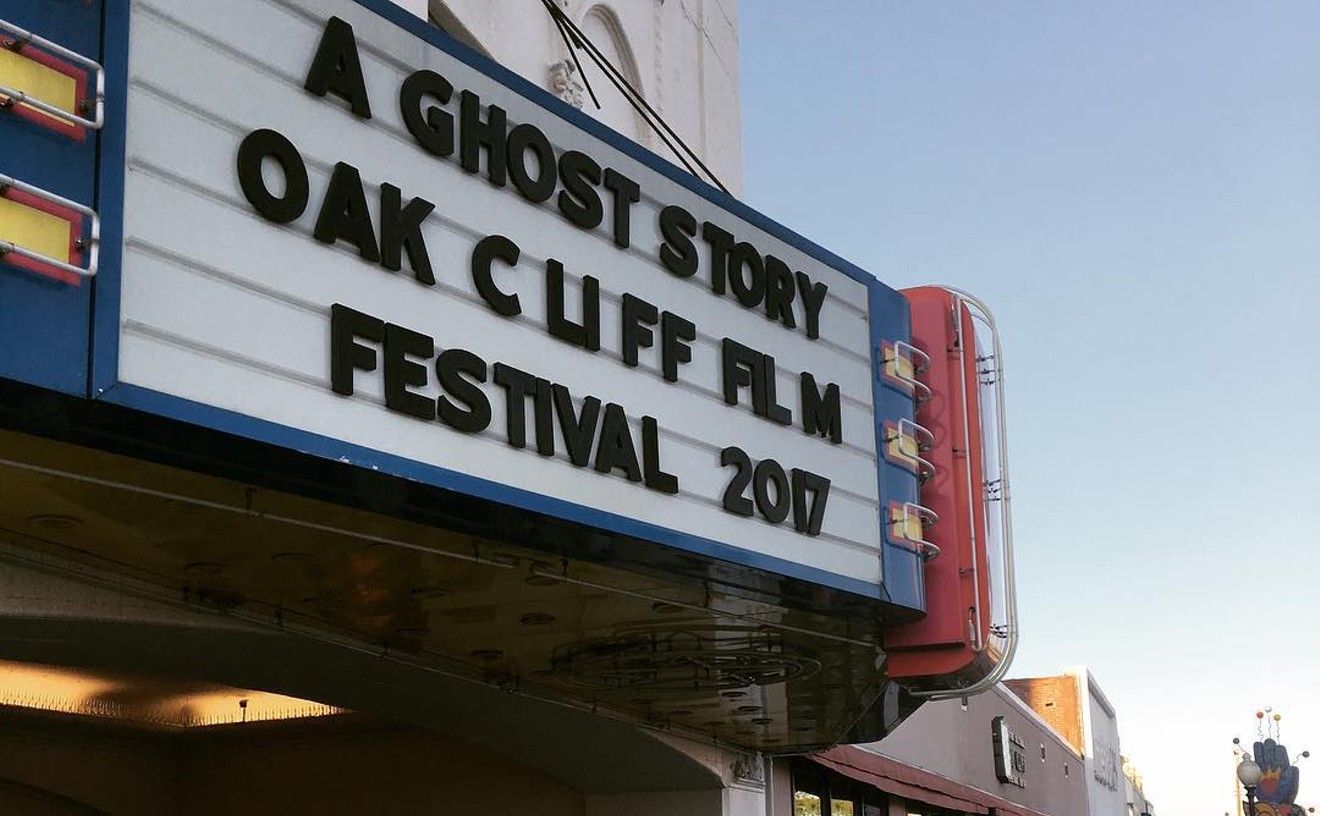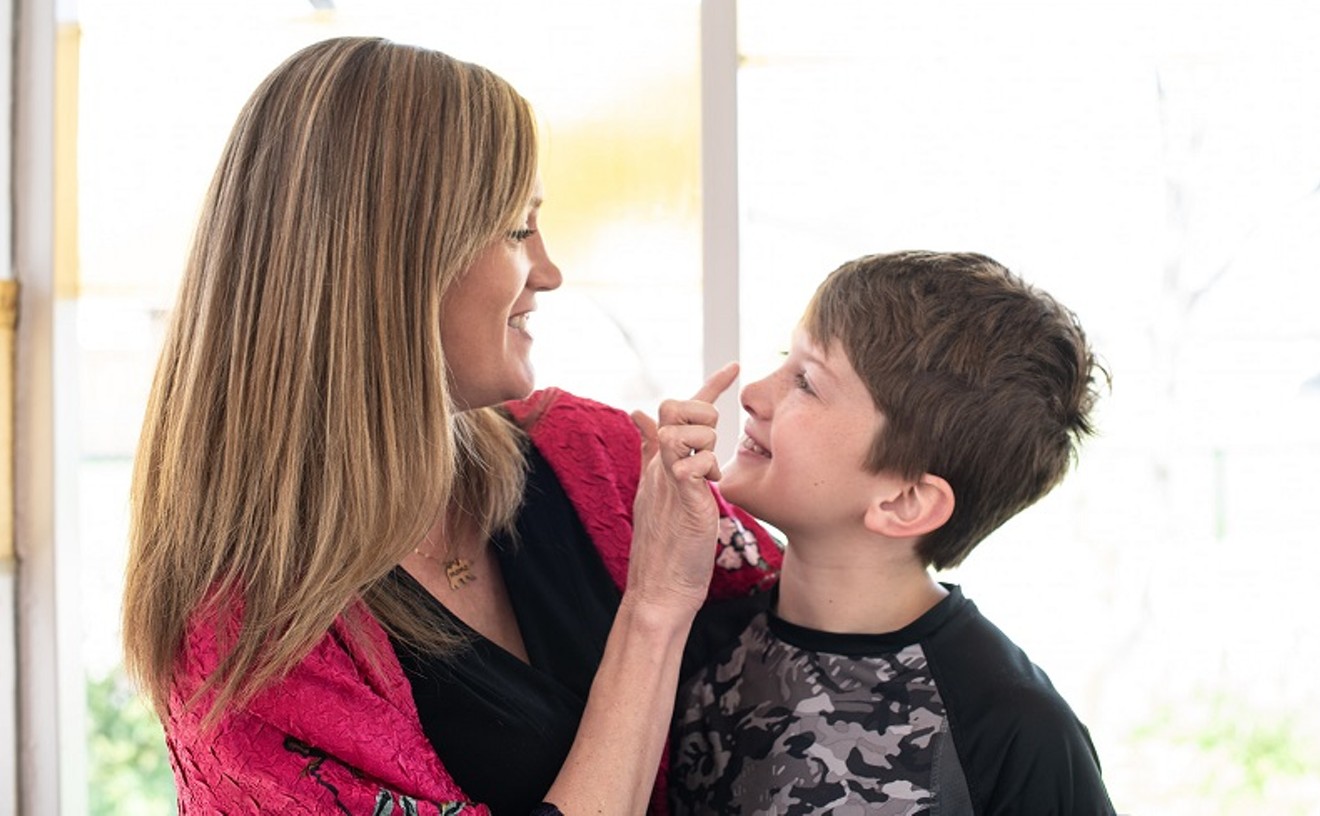Journalists have spent thousands of words in dozens of profiles going on and on about The Mysterious Charlie Kaufman, the man who invented a twin brother named Donald for the movie Adaptation, in which Nicolas Cage played screenwriter Charlie Kaufman and twin brother Donald and in which Charlie wrote about how hard it was being Charlie Kaufman, which is to say a fictional Charlie Kaufman since he looks, acts and is nothing like Cage's depiction of Charlie Kaufman. So much bad celebrity journalism has been practiced in the name of making Kaufman appear more than he is, which is to say less than an inspired writer of labyrinthine tales. The media-created image does him no justice; it renders him a gag, a cheap gimmick, the weird little mind-fucker you'd be wise to steer clear of.
There is nothing at all inexplicable about this man on the other end of the phone. He speaks eloquently, thoughtfully and kindly about anything asked of him. His one long-standing caveat is that he will not explain his movies to you--the puzzle-maker does not provide instructions, does he?--but, aside from that rational and reasonable decision, anything about his writing, the movies made from his screenplays or his past work is fair game. Such are the occasional disappointments, and delights, of the journalist sent into the woods to find Bigfoot: Yeah, he exists, but he's just a puppy dog.
And he's been on a leash for several days now, touring the country to talk about Eternal Sunshine of the Spotless Mind, in which Jim Carrey tries to erase any memory of his relationship with Kate Winslet only to realize, mid-zapping, that he wants to keep her, if only in his thoughts. For the second time, a Kaufman movie takes place inside someone's head--first John Malkovich, hijacked by tourists who gained entry through a secret portal, and now Carrey's Joel Barish, who retreats into buried traumas to hide from the memory-erasers. Kaufman and director Michel Gondry, collaborators on 2001's Human Nature, have been on a P.A. tour--which Kaufman didn't realize meant a "public appearance" tour till he was out in public, answering questions after screenings.
"I thought it was like 'publicity aaaaaah' or 'publicity and,' but it means personal appearance," says Kaufman, giving one the image of the writer and director opening Safeways in Topeka while glad-handing the dumbstruck locals. "And it was fun until San Francisco, and then, for some reason, because I was tired and because of this circumstance of we didn't have chairs and we had one microphone there that we had to share between three people, it was kind of, well, I got a little pissy. But I don't mind talking about the writing process or stuff like that. Also I'm much better at deflecting questions now than I was, you know, with a joke or something. If you get laughs, you feel good about yourself afterwards. Of course, I won't say anything about the movie, just so you know."
But he will and does, to such extent that to reveal too much of the conversation would give away key plot points. Kaufman is even gracious enough to explain what is not in the film but only on paper. The first draft for Eternal Sunshine exists online at a Web site called, appropriately enough, www.beingcharliekaufman.com, which stores his screenplays as well as scripts he wrote for aborted pilots, several pieces he wrote for National Lampoon in the 1980s and even a piece he wrote for his yearbook in 1976 about playing nebbishy critic Allan Felix in a stage production of Play It Again, Sam. ("Looking the way I do, I've always been cast in macho roles," he wrote, "for more than obvious reasons.") Kaufman says he's "heard of the site" and that it contains "too much" of what he's written, but doesn't seem to mind discussing its contents.
For instance, the first draft for Eternal Sunshine begins and ends in the distant future, and it's suggested that Joel and Winslet's character, Clementine, have a long history of erasing each other from their memory banks. They fight, get zapped, get back together and do it all over again, and it plays in the original screenplay like a sick joke--hardly the quixotic movie Gondry and Kaufman eventually wound up with. The filmmakers ultimately decided to remove it, and several other key plot points, because they wanted to leave the movie open to interpretation; like all of Kaufman's movies, it would belong to the audience, not the writer. You can choose to believe in the romantic possibilities suggested by a film in which people fight not to forget each other, or you can choose to believe they're doomed to repeat themselves over and over--that they're stuck in a loop in which love and hate keep changing places every few years. Kaufman is fine with either of your decisions.
"People have asked me about what things mean and what I meant with this, and I usually avoid answering it," he says. "But yesterday I was trying to answer something that somebody was asking me, and I used the word 'fragile,' and I never really used it before, but I keep thinking this morning that that's a really good word for what I'm trying to do. I don't want anything set in stone ever in anything I do. I want it to sort of almost have an effervescent quality that allows it to be continually altering depending on who's watching it or even when an individual's watching it at different times in their lives, so you can take different things from it. And if you're going to do something like that, it's important that you not have a message. And also I don't feel qualified to have a message. What the hell am I going to tell anybody, you know?"
Maybe the weirdest thing of all is that as much as the audience's relationship with his movie changes over time, so does the maker's. He loves all his children equally--save for Confessions of a Dangerous Mind, the 2002 Chuck Barris pseudo-biography he feels director George Clooney attacked with a "sledgehammer"--but can be surprised by his reactions to his own movies.
"I just watched Being John Malkovich again last year, and it felt kind of surprisingly fresh to me," he says. "But this is the weirdest experience. A couple of months ago HBO was showing Adaptation, which I hadn't seen for a while. I was surfing around, and once in a while I'd flip to see what they were up to in Adaptation, and it was a scene where Charlie's having some struggle, and I found myself tearing up. And I thought, 'This is a really emotional movie,' and then I kind of stepped back for a second and thought, 'Well, it's about me. It means nothing that I'm reacting to this. I'm the only person in the world who conceivably could have that reaction to it.' I thought that was a really surreal moment."










